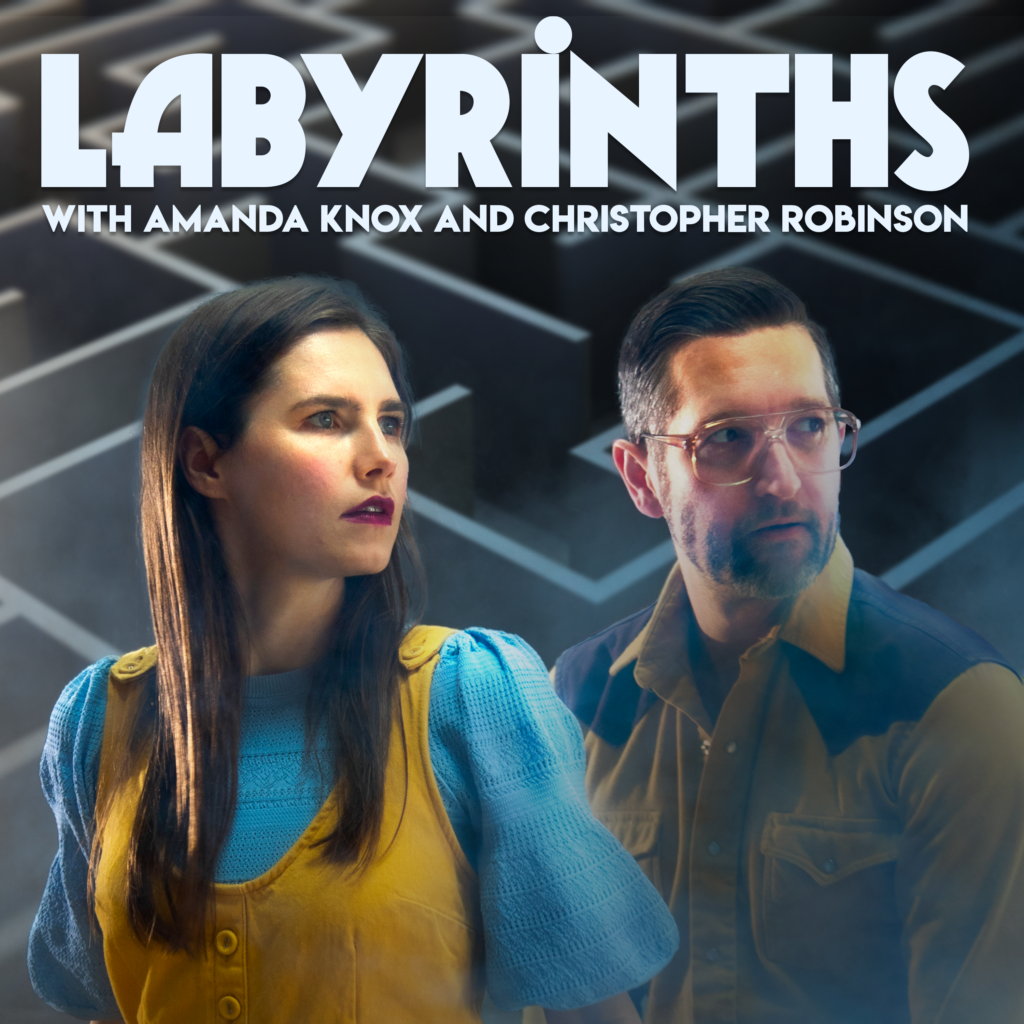‘Labyrinths: Getting Lost with Amanda Knox’ is asking the hard questions with controversial answers

From Knox Robinson Productions comes “Labyrinths: Getting Lost with Amanda Knox.” She and her husband Christopher Robinson are having fascinating conversations with interesting guests about their own labyrinths. Through winding paths, dead ends, short cuts, and even Minotaurs, everyone has their own maze to work through. Amanda and Christopher are having compelling conversations about getting lost in these mazes and finding a way out, complete with philosophical and controversial questions and misadventures. Expect to arrive at an unexpected end with “Labyrinths: Getting Lost with Amanda Knox.”
Malcolm Gladwell
Amanda and Christopher have sat down to have conversations with people like Andrew Yang, Malcolm Gladwell, Samantha Geimer and LeVar Burton about the things that plague them most. The couple talks with Gladwell about crime, racial prejudice and judgement. Much of Gladwell’s literary focus has been on crime in New York City and the prejudice against young Black men.
In a somewhat similar vein, Gladwell recently wrote a book entitled Talking to Strangers which challenges the assumptions we make when encountering strangers, and the dangerous consequences of misreading people we do not know. Amanda and her wrongful conviction was one of his case studies. Together they further discuss what her case meant to society, how we handle crime, and what communities will go through to escape otherness.
Brent Spiner and identity
In a recent episode, Star Trek‘s Brent Spiner joined “Labyrinths: Getting Lost with Amanda Knox,” discussing his new book Fan Fiction. It’s a mem-noir thriller about identity, celebrity, and the sense of self we can create or lose when we create avatars of ourselves online or on screen. As he is best-known for playing the android Data, Amanda and Christopher start this episode off with one of Star Trek‘s many philosophical scenes when Data creates an android daughter, sparking debate about technology and biology, what it means to have offspring, and furthering Data’s quest to become more human.
Ironically, Spiner himself has become so identified as his android character, that he, too, has been grappling with what it means to be human, and to be seen as the person he is, not his character. His book kicks off when he receives a death threat from a woman claiming to be his android daughter from the series, Lal. He, like Amanda has continued to do, explores what it’s like to battle with a fictional version of yourself created by those who don’t know you.
While most episodes do reference Amanda’s experience of being accused of murder, facing a trial on a global scale, and continuing to battle for her own normalcy, they are not consumed by this. Rather, she uses it as a point of connection with “Labyrinth’s” guests.
In “Labyrinths: Getting Lost with Amanda Knox,” you’ll hear stories about the forgotten history of plastic surgery in prisons and how looks matter in the court system. You’ll hear about the world of BDSM with the most respected dominatrix in Los Angeles, and you’ll even hear from the former FBI agent who helped her escape Italy. They’re having conversations with controversial guests and getting into raw emotional stories in a very well produced podcast. Each week, you never know what you’ll hear, so be sure to check out the refreshingly provocative “Labyrinths: Getting Lost with Amanda Knox.”








